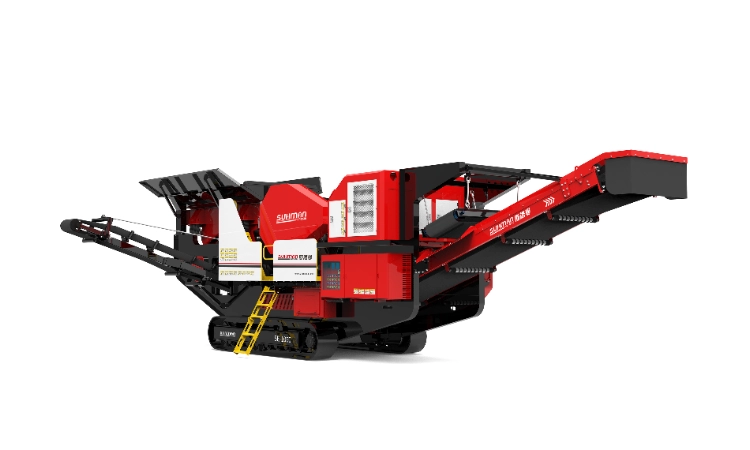In the world of crushing equipment, mobile impact crushers have gained significant popularity due to their versatility and ability to handle a wide range of materials. However, other types of crushers, such as jaw crushers, cone crushers, and hammer crushers, also play crucial roles in various industries. In this article, we will explore the key differences between mobile impact crushers and other crushers, highlighting their features, advantages, and ideal applications.
Table of Contents
- Introduction to Mobile Impact Crushers
- Mobile Jaw Crushers vs. Impact Crushers
- Mobile Cone Crushers vs. Impact Crushers
- Mobile Impact Crushers vs. Hammer Crushers
- Performance Comparison: Mobile Impact Crushers vs. Other Crushers
- Applications of Mobile Impact Crushers
- Choosing the Right Crusher for Your Needs
Introduction to Mobile Impact Crushers
Mobile impact crushers are designed to offer high flexibility in crushing applications. They can be used to process a variety of materials, including aggregates, concrete, asphalt, and even demolition waste. These crushers use impact force to break down materials, which differentiates them from other crushers that rely on compression or shear forces.
Mobile impact crushers are equipped with blow bars, which strike the material to break it apart. This type of crusher is especially efficient for producing medium-sized aggregates that are often required in construction projects. The mobility aspect of these crushers allows for easy transportation between different job sites, making them highly convenient for on-the-go operations.
Mobile Jaw Crushers vs. Impact Crushers
Mobile jaw crushers and mobile impact crushers are both popular choices in the industry. However, they serve different functions in the crushing process. While jaw crushers are typically used for primary crushing, mobile impact crushers are often employed in secondary or even tertiary stages of the crushing process.
Mobile jaw crushers use a crushing action where the material is compressed between two plates, while mobile impact crushers use high-speed impact to break down materials. Below is a comparison between mobile jaw crushers and mobile impact crushers:
| Feature | Mobile Jaw Crusher | Mobile Impact Crusher |
|---|---|---|
| Primary Use | Primary crushing | Secondary/tertiary crushing |
| Crushing Method | Compression | Impact |
| Feed Size | Up to 1500mm | Up to 800mm |
| Output Size | 50mm – 300mm | 30mm – 150mm |
Mobile Cone Crushers vs. Impact Crushers
Mobile cone crushers and mobile impact crushers are both used in secondary and tertiary crushing stages. However, they operate differently and are suited for different types of applications.
Mobile cone crushers use a rotating cone to crush materials, which results in a more precise crushing action. In contrast, mobile impact crushers are generally used for softer materials and are excellent at producing aggregates with a more cubical shape.
| Feature | Mobile Cone Crusher | Mobile Impact Crusher |
|---|---|---|
| Crushing Method | Cone-shaped compression | Impact |
| Best For | Hard, abrasive materials | Soft to medium materials |
| Shape of Output | Rounded | Cubical |
| Output Size | 10mm – 50mm | 30mm – 150mm |
Mobile Impact Crushers vs. Hammer Crushers
Mobile hammer crushers and mobile impact crushers both utilize impact force for material reduction, but they differ in their design and operation. Hammer crushers use a series of rotating hammers to crush material, whereas mobile impact crushers use blow bars to strike material and break it apart.
One key advantage of mobile impact crushers over hammer crushers is that impact crushers generally offer better control over the size and shape of the material. Hammer crushers, on the other hand, are more efficient at crushing harder, more abrasive materials.
| Feature | Mobile Hammer Crusher | Mobile Impact Crusher |
|---|---|---|
| Crushing Mechanism | Rotating hammers | Blow bars |
| Best For | Harder materials | Softer materials |
| Output Size Control | Less control | Better control |
Performance Comparison: Mobile Impact Crushers vs. Other Crushers
The performance of mobile impact crushers compared to other crushers depends on the type of material being processed and the desired output. In general, mobile impact crushers are highly effective at processing softer materials and can produce high-quality, cubical aggregates. However, when it comes to harder, more abrasive materials, jaw crushers, cone crushers, or hammer crushers may be better suited for the task.
Applications of Mobile Impact Crushers
Mobile impact crushers are ideal for recycling operations and processing materials such as concrete, asphalt, and construction debris. They are also commonly used in quarrying operations for producing aggregates. The ability to produce cubical material with high efficiency makes them a popular choice in construction and road building projects.
Choosing the Right Crusher for Your Needs
Choosing between a mobile impact crusher and other types of crushers ultimately depends on the material being processed, the desired output, and the specific requirements of your operation. Mobile impact crushers are versatile and efficient, making them ideal for many applications, but other crushers like jaw, cone, and hammer crushers still have their place when dealing with harder, more abrasive materials.



